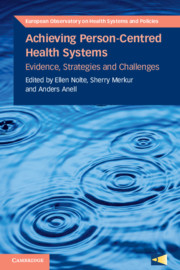Heritable human genome editing
Key goal:
The International Commission on the Clinical Use of Human Germline Genome Editing,which was convened by the U.S. National Academy of Medicine, the U.S. National Academy of Sciences, and the U.K.’s Royal Society and includes members from 10 countries, was tasked with addressing the scientific considerations that would be needed to inform broader societal decision-making. This task involves considering technical, scientific, medical, and regulatoryrequirements, as well as those societal and ethical issues that are inextricably linked to theserequirements, such as the significance of uncertainties related to outcomes, and potential benefits and harms to participants in clinical uses of HHGE.This report does not make judgments about whether any clinical uses of a safe andeffective HHGE methodology, if established by pre-clinical research, should at some point bepermitted. The report instead seeks to determine whether the safety and efficacy of genome editing methodologies and associated assisted reproductive technologies are or could be sufficiently well developed to permit responsible clinical use of HHGE; identifies initial potential applications of HHGE for which a responsible clinical translational pathway can currently be defined; and delineates the necessary elements of such a translational pathway. It also elaborates national and international mechanisms necessary for appropriate scientificgovernance of HHGE, while recognizing that additional governance mechanisms may be needed to address societal considerations that lie beyond the Commission’s charge.
A crucial report, a must read with 11 recommendations, I highlight only 2 below:
Recommendation 10: In order to proceed with applications of heritable human genome editing (HHGE) that go beyond the translational pathway defined for initial classes of use of HHGE, an international body with appropriate standing and diverse expertise and experience should evaluate and make recommendations concerning any proposed new class of use. This international body should:
• clearly define each proposed new class of use and its limitations;
• enable and convene ongoing transparent discussions on the societal issues surrounding the new class of use;
• make recommendations concerning whether it could be appropriate to cross the threshold of permitting the new class of use; and
• provide a responsible translational pathway for the new class of use.
Recommendation 11: An international mechanism should be established by which concerns about research or conduct of heritable human genome editing that deviates from established guidelines or recommended standards can be received, transmitted to relevant national authorities, and publicly disclosed.
Unfortunately Catalan government was not among the 10 countries in the meeting. Is there anybody concerned on this issue?










